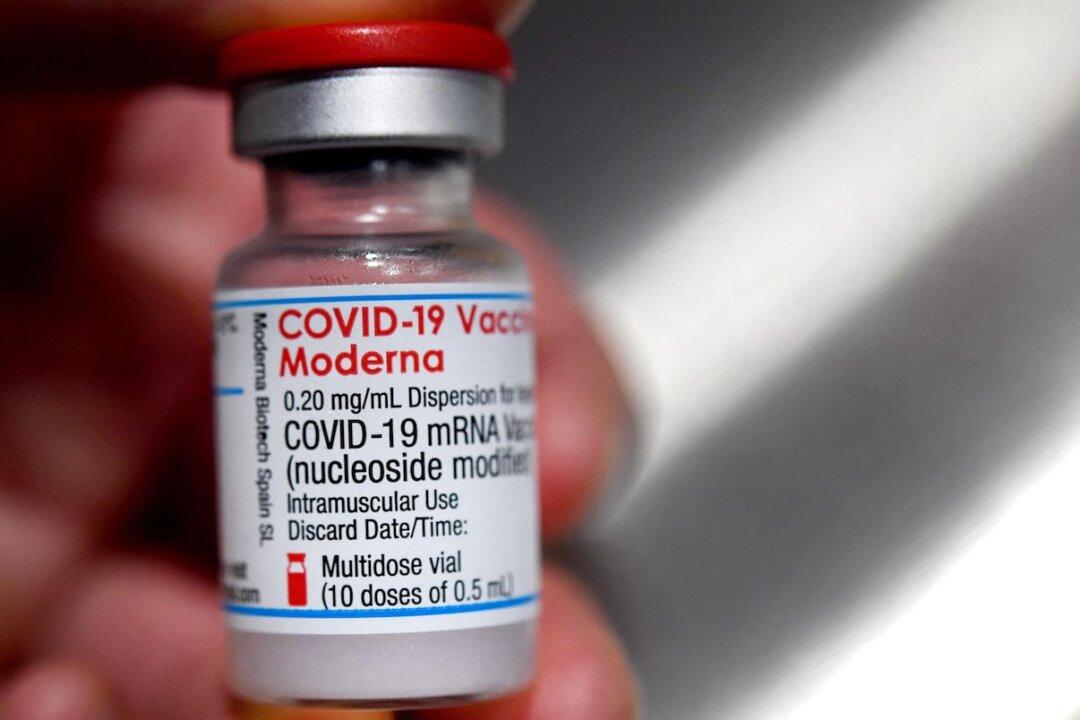Moderna announced on Wednesday that its COVID-19 vaccine decreases in efficacy after a year, suggesting a potential benefit in having a booster shot of its mRNA vaccine.
New clinical trial data showed that breakthrough COVID-19 infections are less common among people who received Moderna’s vaccine, mRNA-1273, more recently compared to less recently, the company said in a release.




